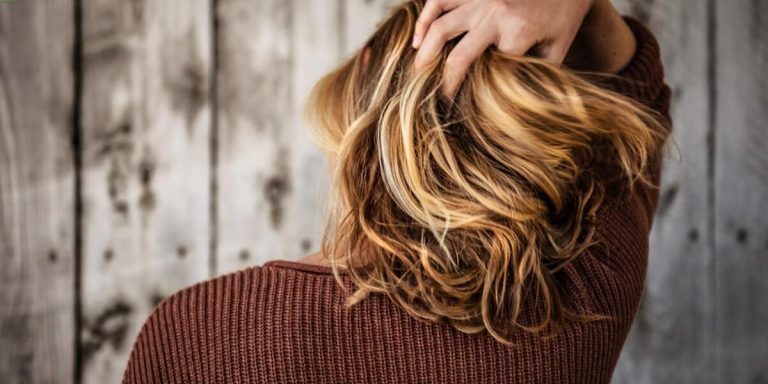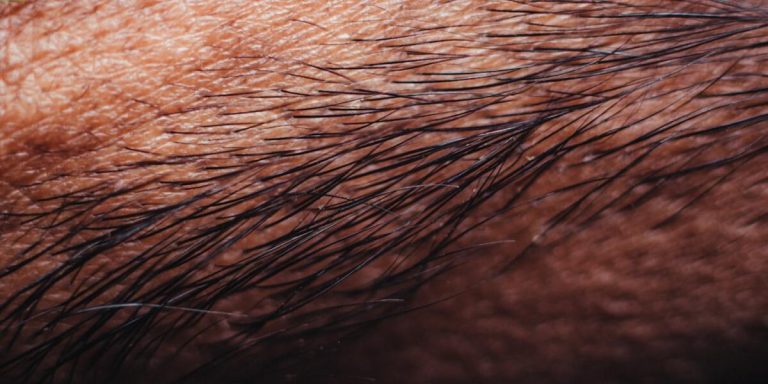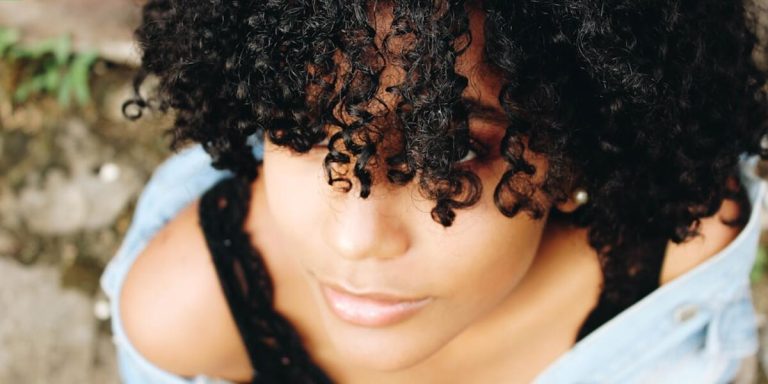Can Vitamins Cause Hair Loss? An In-depth Exploration
Can vitamins cause hair loss? It’s a question that has perplexed many, especially those who have experienced unexpected or sudden hair fall. While we usually associate vitamins with health benefits, overconsumption or misuse of certain types can actually lead to adverse effects including potential damage to your luscious locks.
In this detailed exploration on the matter, we will delve deep into the relation between vitamin intake and hair loss. The goal is to understand whether more isn’t always merrier when it comes nutritious elements – specifically pertaining to maintaining healthy head of hair. We’ll also look at how distinguishing deficiencies from excesses becomes fundamental in determining if our dietary habits are helping us keep our manes full-bodied and robust.
Did you know?
Contrary to popular belief, excessive intake of certain vitamins like Vitamin A and E can actually contribute to hair loss. Overdosing on these fat-soluble vitamins can cause them to accumulate in your body leading to unwanted side effects including shedding strands.
Understanding the Link Between Nutritional Deficiencies and Hair Loss
We all aim to live healthier lives today, and we can’t overstate the importance of nutritional adequacy. It goes beyond maintaining general health and even extends to specific aspects such as hair health.
One might find the link between vitamins—crucial nutrients required for normal bodily functions—and hair loss conditions peculiar. While vitamin deficiency contributes to different types of alopecia or hair loss events, excessive intake of certain vitamins can also lead to similar issues with our hair.
Let’s dissect how exactly these two seemingly contrasting scenarios play out. When your body lacks some critical vitamins such as Vitamin D, B-vitamins especially Biotin (B7), and Amino Acids – which form proteins that are crucial for healthy keratin synthesis (hair’s building block) among others; it may incite follicular challenges leading eventually to premature shedding or thinning patterns on your scalp.
Excessive consumption of certain vitamins, such as A and E, can cause side effects that disrupt natural growth cycles and potentially lead to extensive hair loss.
Whether you’re unintentionally undernourishing yourself due to insufficient dietary intake—perhaps through restrictive eating practices—or unknowingly overdoing it with surplus supplementation: both situations can lead to detrimental outcomes if unchecked. These outcomes are primarily related to hair loss, which is a significant concern here at Soulphany in 2023.
The Impact of Vitamin Imbalances on Hair Growth
Vitamin imbalances can certainly play a significant role in hair growth and, by extension, hair loss. If you’ve wondered “can vitamins cause hair loss?”, the answer is not straightforward – while vitamin deficiencies often contribute to hair fall, an excess of certain vitamins may pose equal problems.
To begin with , let’s explore how Vitamin A impacts your locks. This vitamin supports cell growth- including those cells that constitute your mane. However, too much of it might lead to toxicity resulting in potential damage and unwanted shedding.
The story isn’t vastly different when we turn our attention to Vitamin D either – a lack of this crucial nutrient leads directly to poor follicle health which causes their premature death leading inevitably towards balding. Yet again though beware: excessive intake could well trigger equally undesirable repercussions like sudden thinning or patchy spots appearing on the scalp.
Ironically, Biotin, often prescribed to combat alopecia (hair loss), has its issues if taken uncontrollably. While low levels impair amino acid conversion—essential for strong hair—a deficiency is possible. On the other hand, taking excessive doses over long periods can disrupt body metabolism and lead to serious complications, including adverse effects on hair growth.
Essential Nutrients: What Your Hair Truly Needs
Your hair requires a balanced diet, just like your body does. However, many people often overlook the importance of nutrition in maintaining hair health. Here’s how certain nutrients play a role in preventing hair loss and promoting healthier cycles of growth.
Protein forms an integral part of our hairs’ structure; hence it is no surprise that its deficiency can lead to weak strands or even baldness over time. Ensure you consume ample quantities through lean meat, lentils and dairy products for strong healthy locks.
Iron plays dual roles – carrying oxygen to the follicles while catalyzing protein synthesis too. Its shortage means less oxygen making its way to your scalp which could result potentially disrupting growth cycle leading eventually towards shedding more than usual.
While Vitamin A helps create sebum acting as natural conditioner keeping dryness at bay; excess consumption ironically might do opposite creating surplus oil blocking pores causing breakage from roots thereby make ‘can vitamins cause hair loss’, true indeed!
B Vitamins are essential for cell regeneration required by our rapidly growing tresses where B7 specifically known as biotin works wonders combating thinning problems though deficient levels may not be common among adults but better safe than sorry right?
Exploring the Role of Supplements in Exacerbating Hair Fall
The concern regarding whether vitamins could contribute to hair loss is both perplexing and multifaceted. Even though supplements are widely known for their beneficial role in boosting health, a less publicized aspect remains: they may inadvertently lead to undesirable side effects such as exacerbated hair fall under certain circumstances.
An increased intake of specific vitamin types can create an internal imbalance, which might cause the body’s systems, including our scalp’s usual operations, stress. Consequently triggering hair fall at an unnaturally rapid rate.
Ingesting too many Vitamin A supplements without medical guidance serves as one clear-cut example where overzealous self-care ends up doing more harm than good. Excessive amounts of this vitamin can potentially overwhelm the system causing numerous issues—one notable problem being overly accelerated stages of the natural process called ‘hair life cycle’ disturbing its regular balance resulting in excessive shedding or thinning.
Placing all the blame on vitamins for hair loss scenarios would be misguided. Other contributing factors, such as lifestyle choices or genetic predispositions, play significant roles. The main takeaway is that more isn’t always better—especially when ingesting anything above recommended daily values.
To avoid potential disasters from nutrient overload and complications like aggravating hair loss:
- Opt for moderation in usage.
- Avoid unnecessary extremes.
- Get professional consultation if necessary to ensure safety.
Can Over-Supplementation Lead to Increased Shedding?
In our quest for healthier, shinier and thicker hair, we often resort to consuming various forms of nutritional supplements. But how many times have we stopped to consider if these can potentially trigger excessive shedding? When referring specifically to the question ‘Can vitamins cause hair loss?’, multiple factors come into play.
Many popular hair growth pills contain a concentrated cocktail of essential nutrients such as iron, vitamin A, zinc or biotin which are indeed beneficial in moderate amounts. These components actively contribute towards boosting overall health and aiding in maintaining luscious locks.
However, trouble arises when one begins over-consuming these elements through supplementations without proper understanding regarding appropriate dosage requirements specific to individual needs. Over-supplementation does not equate better results but is more likely to lead you down an undesirable path.
1) Excessive intake of Vitamin A can interrupt your normal bodily processes leading it to believe that every single strand is at the end stage (telogen phase) thereby initiating premature falling out.
2) Iron deficiency contributes heavily towards brittle strands prone breaking yet on contrast surplus iron induces production harmful oxidizing agents targeting follicle cells responsible for triggering alopecia condition known as telogen effluvium resulting increased shredding patterns upon combing brushing.
3) Biotin’s role enhancing crucial protein keratin structure paves way denser however overdosing could pose risks including skin rashes rapid heart rate even extensive dropping off due counter productive impacts inherent regrowth mechanism .
Deciphering the Fine Line: Adequate Intake vs. Toxicity Levels
It’s common knowledge that a well-balanced diet, enriched with necessary vitamins and minerals, is indispensable for maintaining healthy hair. Yet, an emerging question in 2023 is – can vitamins cause hair loss? Digging deeper into this domain reveals some startling insights.
The fine line between adequate intake and toxicity levels of certain supplements lies at the heart of our query. Understanding this nuance becomes vital when unraveling the intricate relationship these supplements share with your crowning glory.
Vitamin A is one such example. While it plays significant roles like supporting cell growth including those responsible for producing hair follicles, too much vitamin A—especially through supplementation—has been reported to potentially instigate unwanted side effects involving unexpected shedding phases or even baldness in severe cases!
Even antioxidants aren’t entirely harmless —high dosages of Vitamin E are associated with potential risks as they tend to obstruct natural absorption processes leading ultimately towards thinning mane you would rather avoid!
Let’s not forget B-Vitamins either; particularly Biotin assumed primarily beneficial due to its fame across various beauty products promoting luscious locks. However evidence indicates rampant deficiency being rare while high doses without medical guidance indeed threaten potential havoc on your scalp health instead than achieving seemingly attractive results!
Unraveling Common Myths About Vitamins and Hair Health
Many people seek healthy, luscious hair by turning to various vitamins and supplements, which are frequently promoted as miracle cures for thinning or slow-growing hair by celebrities and social media influencers. Yet, one should be aware that excess vitamin intake can lead to unintended effects on their precious tresses.
Excessively high levels of some vitamins may actually contribute to hair loss, challenging the common belief that more is always better.
The relationship between vitamins and hair health is deeply entwined with our body’s complex biological systems. A balanced diet usually provides all the essential nutrients our bodies need for normal functions, including keeping a healthy scalp. But if we don’t get enough of these nutrients from food, we might need supplements. Taking too many can disrupt the delicate balance and lead to unwanted side effects like increased shedding or balding patches.
Busting Misconceptions Around Biotin and Its Effects on Baldness
Contrary to common beliefs, research has debunked the myth that a higher dosage of Biotin automatically means healthier hair growth. Instead, studies have pointed out that our bodies only require an adequate level of such nutrients for optimal function – anything excessive could potentially lead to different health issues.
A 2020 study in Japan revealed no relationship between high vitamin intake and improved alopecia conditions; instead it focused on balanced nutrition being more beneficial overall rather than pinpointing one specific supplement like Biotin.
Baldness primarily stems from genetic factors or aging process and while nutritional deficiencies may contribute marginally toward altered scalp health – they are rarely the culprits behind your receding hairline.
Addressing Beliefs About Antioxidants and Their True Effect on Scalp Wellness
In our quest to maintain optimal scalp health, we often stumble upon various myths regarding antioxidants and their effects on hair loss. One of such myths is the belief that an excess intake of certain vitamins leads to hair shedding.
This conception springs from the fact that anything taken in large quantities can have adverse side-effects. While this statement holds water for some substances, it’s important not to lump all antioxidants together. Notably, excessive consumption of vitamin A has been linked with potential hair fall; however, associating all vitamins with similar consequences would be misleading.
Scientific research highlights a group of potent antioxidants beneficial for your mane: Vitamin C & E! Acting as excellent supporters for healthy follicles and strands, these essential nutrients boost blood circulation within your scalp region promoting healthier growth cycles.
Moreover contrary to popular claims about Biotin or Vitamin H causing disruptions in natural growth phases proves only partially true if consumed haphazardly without professional consultation. Yet when balanced properly under expert guidance helps strengthen brittle strands by restoring keratin infrastructure -a protein making up most part- thus reinventing them into fuller thicker locks!
Lastly comes Zinc another mineral commonly blamed for instigating falls which indeed could lead onto thinning patches but again only if abused beyond nutritional limits set naturally according strengths individual system intakes hence explaining why moderation always key maintaining overall wellness including crowning glory sitting pretty atop head!
Conclusion
So, “can vitamins cause hair loss?” was the query we embarked on deciphering. The truth of it all lies in balance; too little or excessive intake can indeed lead to disrupted hair health. While some vitamins are hailed for their benefits in promoting lush locks, an overdose may tilt your body’s harmony and instigate unwanted reactions such as shedding those precious strands.
Now that you’re equipped with this newfound knowledge about vitamin-infused hair woes, feel free to explore more enlightening topics around ‘Hair Loss Causes’ right here on our website. Expert-approved advice and well-curated content await! We aim to arm you with accurate information so that dealing with unnecessary stress over tress distress becomes a thing of the past.







